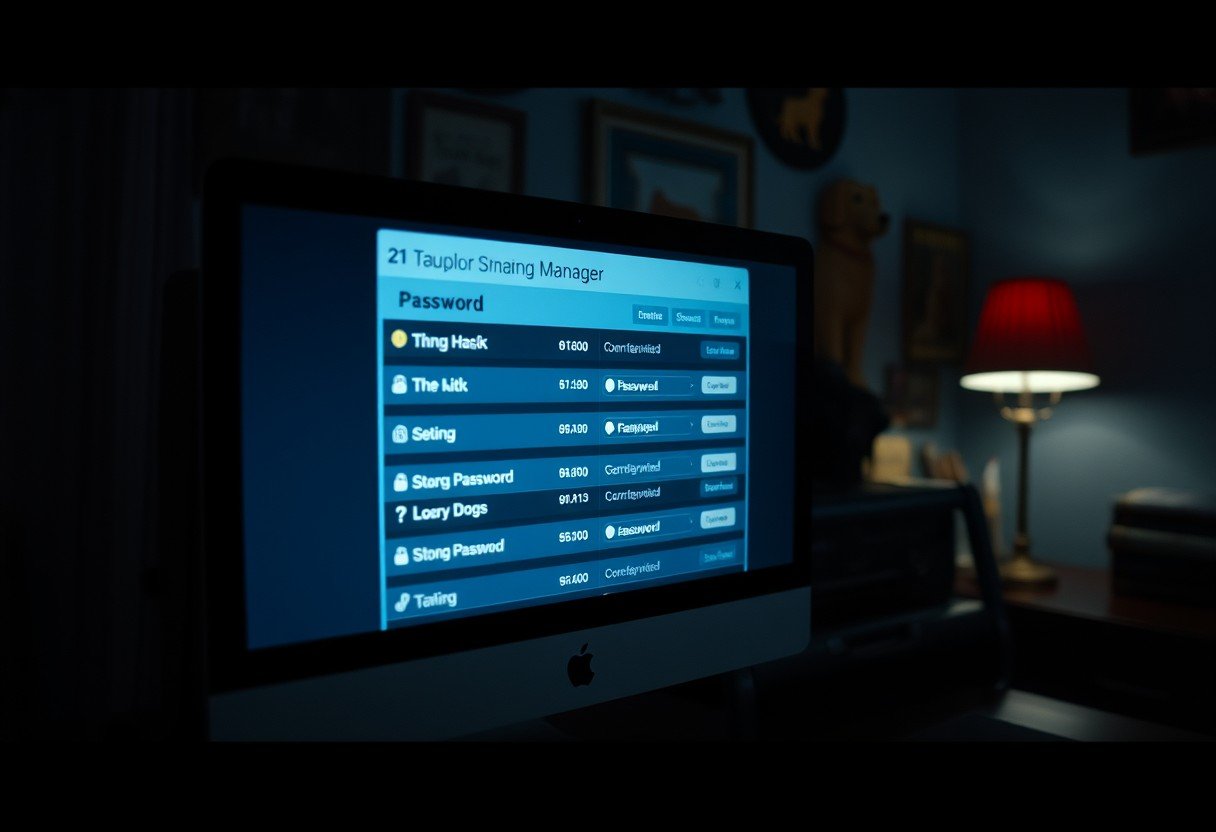Receiving a bill for a purchase you never made can be confusing and alarming. This is often the first sign that your Social Security Number (SSN) has been stolen. Identity thieves use your SSN to open accounts, file taxes, and commit other types of fraud in your name. Understanding the warning signs is the first critical step toward protecting your finances and identity. Fixing the damage can take time, so early detection is key.
Strange Activity on Your Financial Accounts
One of the most direct signs of SSN theft is seeing transactions you don’t recognize. These can appear on your bank statements, credit card bills, or even brokerage accounts. Thieves use your information to make purchases or withdraw cash, hoping you won’t notice right away.
It’s crucial to review your financial statements every month. Don’t just glance at the total; look at each individual transaction. If you see something unfamiliar, no matter how small, contact your financial institution immediately.
Always report unauthorized transactions to your bank or creditor as soon as you spot them. They can freeze the account to prevent further damage and begin an investigation. You should also file a police report, as this official document is often required to dispute the fraudulent charges and repair your credit.
Problems When Filing Your Taxes
Imagine sitting down to file your taxes, only for your electronic return to be rejected. The reason? The IRS says a return has already been filed using your Social Security number. This is a clear indicator that a criminal has used your SSN to file a fake tax return, usually to claim a fraudulent refund and have it sent to them.
Another tax-related red flag is receiving a tax refund you didn’t apply for or a tax notice about income from an employer you’ve never worked for. These are signs that someone else is using your identity for employment or tax fraud.
If this happens, you should immediately contact the IRS and file an Identity Theft Affidavit (Form 14039). The IRS has specific procedures to help victims of tax identity theft resolve their cases and file their legitimate returns.
Sudden and Unexplained Changes to Your Credit Score
Your credit score is a summary of your financial health. If it suddenly drops for no reason, it could mean a thief has opened new credit accounts in your name and is not paying the bills. On the other hand, a score that is suspiciously high might also be a red flag, indicating fraudulent activity you’re not aware of.
Regularly checking your credit reports from the three main bureaus is the best way to catch this. You are entitled to a free credit report from each bureau every year. When you review it, look for:
- Credit cards or loans you didn’t apply for.
- Inquiries from companies you don’t recognize.
- Addresses where you’ve never lived.
- Accounts that have been sent to collections without your knowledge.
If you find inaccuracies, you must dispute them with the credit reporting agency in writing. This creates a paper trail and formally begins the process of correcting your record. According to the Fair Credit Reporting Act, the agencies are required to investigate your claim.
Your Employer Reports a Data Breach
Sometimes, the first warning sign comes directly from your employer. If your company experiences a data breach where employee information, including SSNs, is exposed, you are at a much higher risk of identity theft. Criminals can use this information for various schemes.
One common fraud is filing for unemployment benefits in your name. A thief who has your SSN and knows you are employed can file a claim, hoping to receive payments before the state agency realizes you are still working. If you receive any mail about an unemployment claim you didn’t make, report it to your employer and your state’s unemployment agency immediately.
Steps to Take If Your SSN is Compromised
Discovering your SSN has been stolen is stressful, but taking quick, decisive action can limit the damage. It is important to act methodically to protect yourself and begin the recovery process.
The Federal Trade Commission (FTC) provides a personalized recovery plan at IdentityTheft.gov. This is the best place to start, as it guides you through the necessary steps based on your specific situation. Here is a general checklist of actions to take:
- Report the Theft to the FTC: Go to IdentityTheft.gov to file a report. This creates an official record and provides you with a recovery plan.
- Contact the Credit Bureaus: Place a fraud alert or a credit freeze on your reports with all three major credit bureaus. A fraud alert is free and makes it harder for someone to open new credit in your name. A credit freeze offers stronger protection by restricting access to your report.
- File a Police Report: Contact your local police department to file a report. Get a copy of the report, as you will need it when dealing with creditors and other institutions.
- Notify Your Banks and Creditors: Close any accounts that were tampered with or opened fraudulently. Speak with the fraud department and follow their instructions.
Contacting the credit bureaus is a critical step. You can do this online or by phone.
| Credit Bureau | Website | Phone Number |
|---|---|---|
| Equifax | equifax.com | 1-800-685-1111 |
| Experian | experian.com | 1-888-397-3742 |
| TransUnion | transunion.com | 1-888-909-8872 |
Frequently Asked Questions
How do I check if someone is using my Social Security number?
You can check by regularly monitoring your credit reports for free at AnnualCreditReport.com, reviewing your Social Security statement at ssa.gov for incorrect earnings, and watching your financial accounts for any suspicious activity.
Can I get a new Social Security number if mine is stolen?
The Social Security Administration rarely issues a new number. You must prove that you are experiencing ongoing harm and have exhausted all other options to resolve the problems. Getting a new number can also create new problems, as it won’t be linked to your old credit history.
What is the difference between a fraud alert and a credit freeze?
A fraud alert requires potential lenders to verify your identity before issuing new credit, and it lasts for one year. A credit freeze is more restrictive; it locks down your credit file so no one, including you, can open a new account until you “thaw” it with a special PIN.
How long does it take to recover from identity theft?
Recovery time varies widely. Simple cases might be resolved in a few weeks, but more complex situations where a thief has opened multiple accounts or committed tax fraud can take many months or even years to fully resolve.
Should I pay for an identity theft protection service?
These services can be helpful as they often include credit monitoring, identity theft insurance, and restoration assistance. However, you can do many of the same things for free, such as placing fraud alerts and checking your own credit reports. The choice depends on your comfort level and how much time you want to dedicate to monitoring your own information.









Leave a Comment